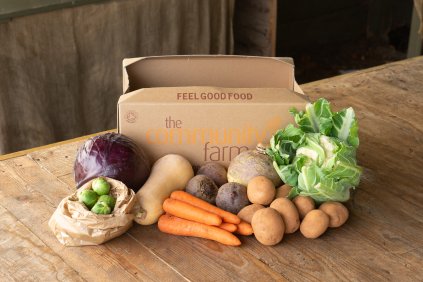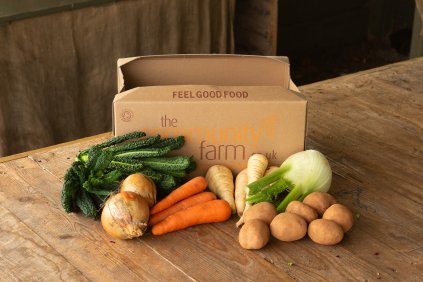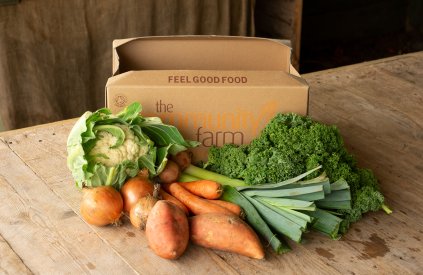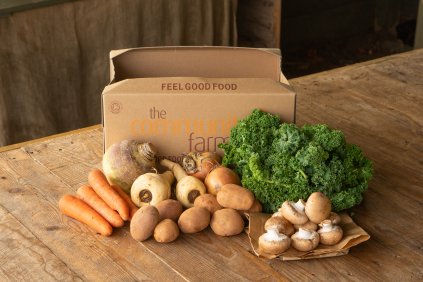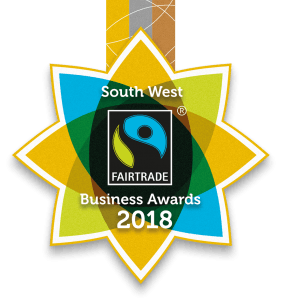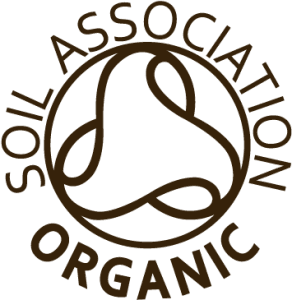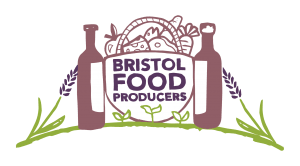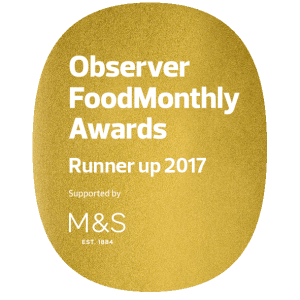This year, I was invited to represent The Community Farm at the Oxford Real Farming Conference (ORFC). What an honour!
This was the first time I had been to the ORFC in person, having only attended once before online as part of a panel with the Soil Association last year. The conference has been going for 14 years, its founding roots being a group of activists. These activists knew that the other Oxford Farming Conference was bringing people together who were practicing agricultural methods that were damaging our planet and its inhabitants, and that there was a need to gather people who were farming in ways that were there to serve people and planet. 14 years ago, there were below 50 attendees, this year the Oxford Real Farming Conference is the largest annual agroecological gathering on the planet with 1,000s of attendees.
I liken the story of the ORFC to our own at The Community Farm (The Farm); started by activists, and now with 1,000s of friends and supporters; each of them wanting to support and gain support from The Farm. Every year we welcome over 1,000 people to The Farm, who spend collectively over 8,000 days here, inspiring each other and being part of a farm that is doing good for themselves and for those it feeds, human and non-human.
Food for thought
The opening ceremony of the ORFC was simply inspiring, starting with Taiko drummers making our hearts beat faster.
It’s opening speakers covered a range of topics and left us with tremendous food for thought:
- Ruth West (Co-founder of the ORFC) told us the story of the beginnings of the ORFC, explaining what they meant by “Real”; a short term for agroecological farming, which is both a science and a practice. Language is a powerful thing, and her stance on regenerative was interesting too; “it falls too easily off the tongue”, reflecting, I think, on the use by some companies that is not true to its meaning, using it for green wash because it’s not certified.
- Oli Rodker (LWA) and Naomi Terry from Land in Our Names (LION) shared my only dampening feeling about the room; challenging us on who was not in it – the voices we were not hearing, the sad truth that the room was occupied primarily with a small set of demographics; white, wealthy, over 50.
- Kath Dalemy (Sustain) reflected on the restrictions politics is placing on the movement; “it used to be information that was power”, but in this world of information at our finger tips, now it is held back by people in politics “who don’t understand the soil”. How do we put farms first? Subsidies that ensure money goes to the right people in the right place, public procurement policy that stops being delayed and supports better farming, and better farming being paid for properly – “an investment back into the soil and the dung beetles and the wildlife”.
- Rebecca Mayhew (Pasture for Life) shared the story of her family farm; making the transition from the “most efficient” methods that were “feeding the world at any cost”, to the restorative methods of slow pasture fed animals that focused on animal welfare, soil and people health. She very sensibly reminded us “Since our break with nature started with agriculture, it only makes sense that we start with agriculture to fix it”.
- Naomi Terry from Land in Our Names (LION) left us with a poem about the power of our imagination to activate our agency, whilst promoting an important piece of research just completed into the experience of Black people and people of colour (BPOC) in the farming industry in the UK. The report Jumping Fences is available to read now: https://landinournames.community/projects/jumping-fences.
The Community Farm at the ORFC
I myself was asked to participate in the talk “Can Farming and Food Traders Weather the Economic Storm?”. We discussed the broad range of issues being faced, not caused but exasperated by the Cost-of-Living Crisis, and the difficult impact on our fellow farmers and food workers. The key messages we shared;
- Agroecological food and farming operates in a very difficult landscape; politically, geologically and economically – the challenges of political power and misunderstanding; government subsidies and support that favour global systems, large scale, industrialised farming, devaluation of farmers, degradation of soil and low profit margins throughout the food chain.
- These challenges are long term; the short term, capitalist economic storm of the cost-of-living crisis is yet another mountain to climb in this landscape. Another obstruction to the movement represented by the ORFC.
- Mark Thomas (Farming Community Network) and Caron Whaley (RABI) revealed the harsh truth the impact was having on farmers mental health; the people who feed us quietly suffering which was incredibly hard to hear. The research was challenged by a member in the audience, but Caron rightly pointed out the results could not be denied.
- All of those on the panel were part of the agroecological solution, with organisations based on values, not profit, and long term solutions not short term gains.
- It was these values we have returned to give us the strength to ride the storm; it is these values which have allowed us to build long term relationships with our customers and supporters who, when during this crisis are having to make difficult choices.
- It was our ways of working and the sense of community that gave our staff and volunteers the resilience to work so hard to get us through.
- “Our customers are not fickle” (Phil Haughton), but some are being challenged and feeling pricing pressures.
- The supermarkets responded to the crisis; they were loud, they returned to their own values – “cheap” food that doesn’t recognise the true cost of production, price promotions to increase customer numbers, promoting the need to swap to their cheaper brands of which they take even more of the margin.
- As farmers and retailers, we need to shout louder; take this as an opportunity to remind our loyal customers of the value they are creating with every pound they spend with us, not join the race to the bottom, devaluing food such that small scale agroecological farmers cannot survive.
Most importantly, it is our community that has ensured the survival of The Community Farm, and it is the community that surrounds this food movement that will ensure its long-term survival against this short term, crisis of capitalism.
Whilst our talk was clearly reflecting on a difficult year, and difficult times ahead, there was much hope shared too, as reflected around the conference.
Angela Raffle, one of our Founders and Chair of our Management, ran two sessions with Jenny Mackewn that shared ways of decision making we use at The Farm, boosting people at the end of long conference days:
'At this year’s conference I ran two 90-minute workshops, with long-term friend of the Farm Jenny Mackewn. The title (‘embodied systemic mapping for problem solving’) was hardly very enticing and we were desperately worried that nobody would come, but to our delight we had a full house and many more who we sadly had to turn away. We gently guided our participants through a personal mapping exercise with post-it notes, showing them how to take an ‘embodied read’ simply by placing your finger on different elements. Possible shifts are then explored, and a second read helps you witness how these can affect the system. After that we practiced a way of approaching decisions by silently standing on pieces of paper as floor markers. By the end all were intrigued and captivated by what they had learned and went away happy – with comments in our closing circle such as ‘Instant, Utter, Clarity’. I do hope that ORFC will let us run similar workshops again next year'. (Angela Raffle)
Whilst the speakers during the opening ceremony were there to inspire, the audience are just as important in the movement the ORFC represents. There was a lady sat next to me during the opening ceremony; she was “just starting out”, with 3 acres of land that she wanted to share with others to start an agroecological project, likely a Community Supported Agriculture project (“CSA”). She was wanting any advice I could share from The Farm, felt unsure, questioned whether she had much to give. Anyone with land they’re willing to share, with an open heart and mind to start a CSA I would say has everything they need to be part of this vital movement, they are the very core of it. Whilst the official sessions at the conference are well informed and thought provoking (I haven’t even reflected on the session with Hodmedod’s and Small Food Bakery, pushing policy changes through pulses and bread!), it is the stories and conversations between attendees that leave you well prepared for another season in this fantastic food and farming movement.
By Kim Brooks, Managing Director


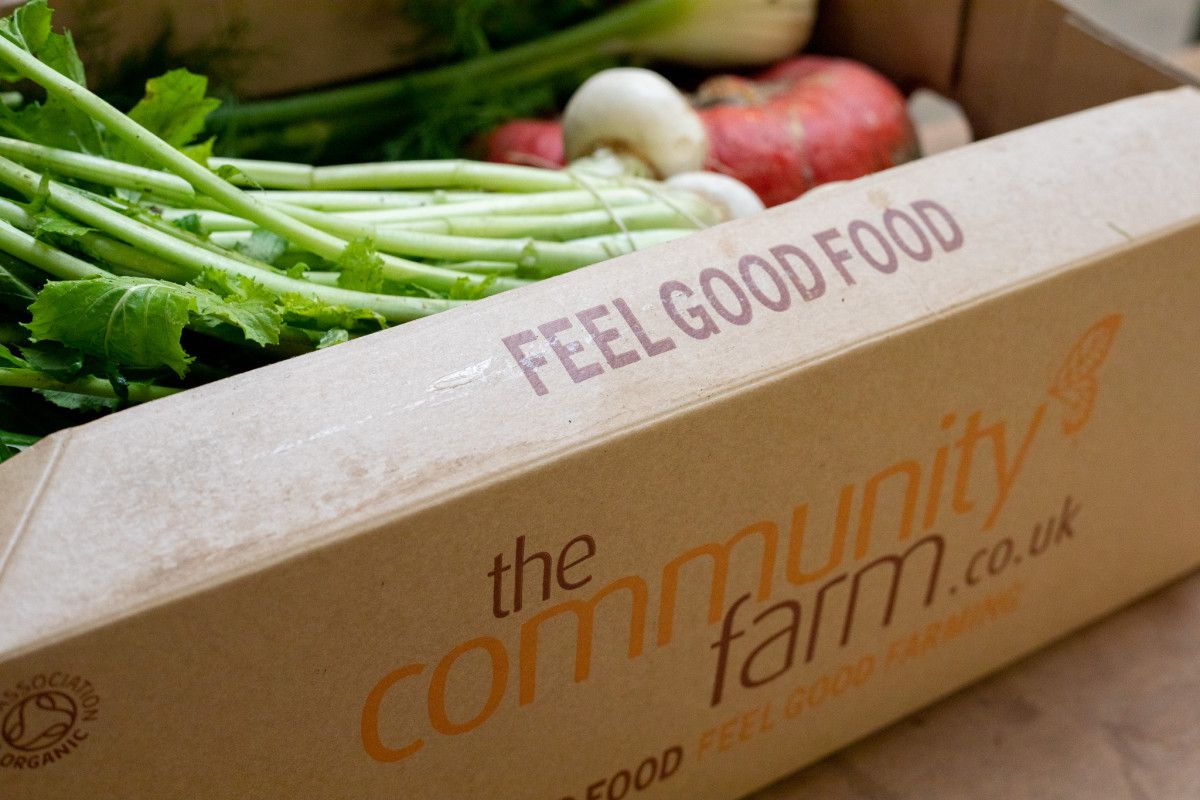
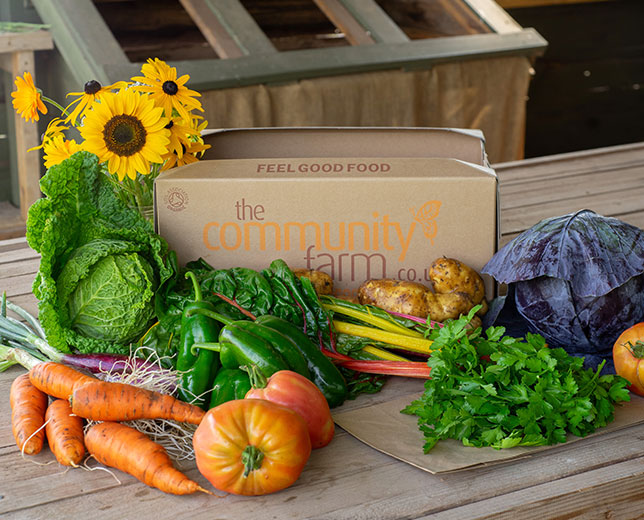
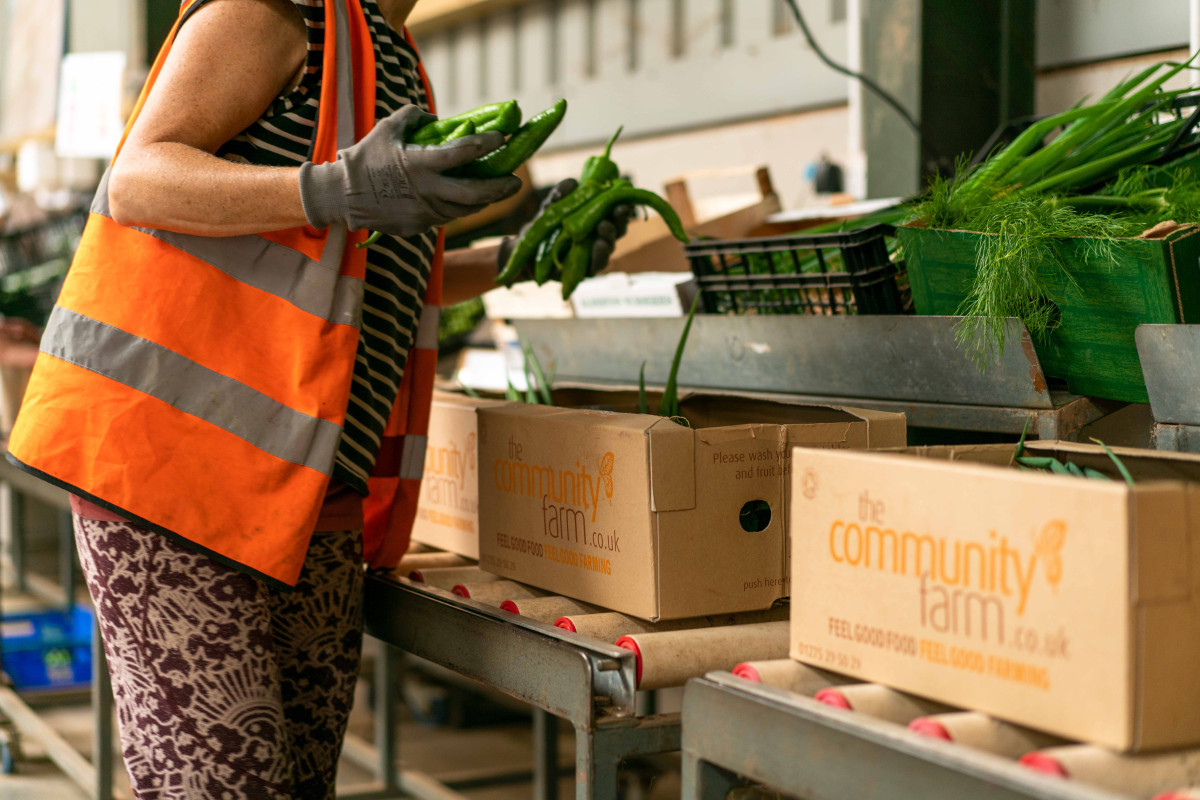
.jpg)
